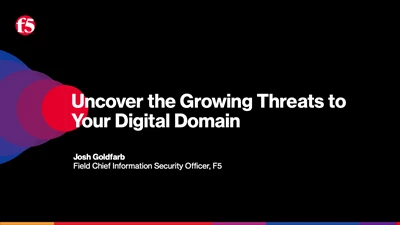Infosecurity News

Android SMS Stealer Infects 100,000 Devices in Uzbekistan
New Android malware Qwizzserial has infected 100,000 devices, primarily in Uzbekistan, stealing SMS data via Telegram distribution

AI Models Mislead Users on Login URLs
A third of AI-generated login URLs lead to incorrect or dangerous domains, according to Netcraft

Chinese Hackers Target France in Ivanti Zero-Day Exploit Campaign
The French cybersecurity agency identified Houken, a new Chinese intrusion campaign targeting various industries in France

US Treasury Sanctions Russian Bulletproof Hosting Service Aeza Group
The Treasury said that Aeza Group has provided infrastructure services for notorious infostealer and ransomware operators

Dozens of Corporates Caught in Kelly Benefits Data Breach
Benefits admin specialist Kelly Benefits has revealed a breach impacting over 500,000 individuals across 45 client organizations

Qantas Reveals “Significant” Contact Center Data Breach
Qantas admits that a “significant” volume of customer data may have been stolen from a contact center

Cloudflare Now Blocks AI Web Scraping by Default
Cloudflare now blocks AI web crawlers by default, requiring permission from site owners for access

Google Issues Emergency Patch for Fourth Chrome Zero-Day of 2025
Google has patched a critical type confusion vulnerability in Chrome, the fourth zero-day fix in 2025

New Report Uncovers Major Overlaps in Cybercrime and State-Sponsored Espionage
Proofpoint has identified similarities between the tactics of a pro-Russian cyber espionage group and a cybercriminal gang

International Criminal Court Hit by “Sophisticated and Targeted” Attack
The ICC said the new incident was the second “of its type” it has faced in recent years, relating to an espionage attack in 2023

Crypto Hack Losses in First Half of 2025 Exceed 2024 Total
CertiK found $2.47bn in crypto was stolen in H1 2025, largely due to two major security incidents – ByBit and Cetus

Ransomware Strike on Swiss Health Foundation Exposes Government Data
The threat actor Sarcoma has been held responsible for a ransomware attack on a Swiss health foundation

Scam Centers Expand Global Footprint with Trafficked Victims
Interpol warns that scam centers are expanding beyond Southeast Asia

US DoJ and Microsoft Target North Korean IT Workers
Both the US authorities and Microsoft have taken action to disrupt North Korean IT worker schemes

International Taskforce Dismantles €460m Crypto Fraud Network
A €460m cryptocurrency fraud scheme has been disrupted by authorities, leading to five arrests in Spain

Iranian Cyber Threats Persist Despite Ceasefire, US Intelligence Warns
US Defense Industrial Base (DIB) companies are “at increased risk” of cyber-attacks from Iran-aligned hacking groups

Food Retailer Ahold Delhaize Discloses Data Breach Impacting 2.2 Million
Ahold Delhaize has confirmed a cyber-attack exposed personal data of over 2.2 million individuals in the US

Canada Bans Chinese CCTV Vendor Hikvision Over National Security Concerns
The ban on Hikvision products follows a national security review under the Investment Canada Act

Scattered Spider Actively Targeting Airlines, FBI Warns
The FBI alert comes amid several reported cyber incidents impacting North America-based airlines, including Hawaiian Airlines

IT Worker Jailed After Revenge Attack on Employer
An IT worker has been jailed for launching a cyber-attack after he was suspended at work



